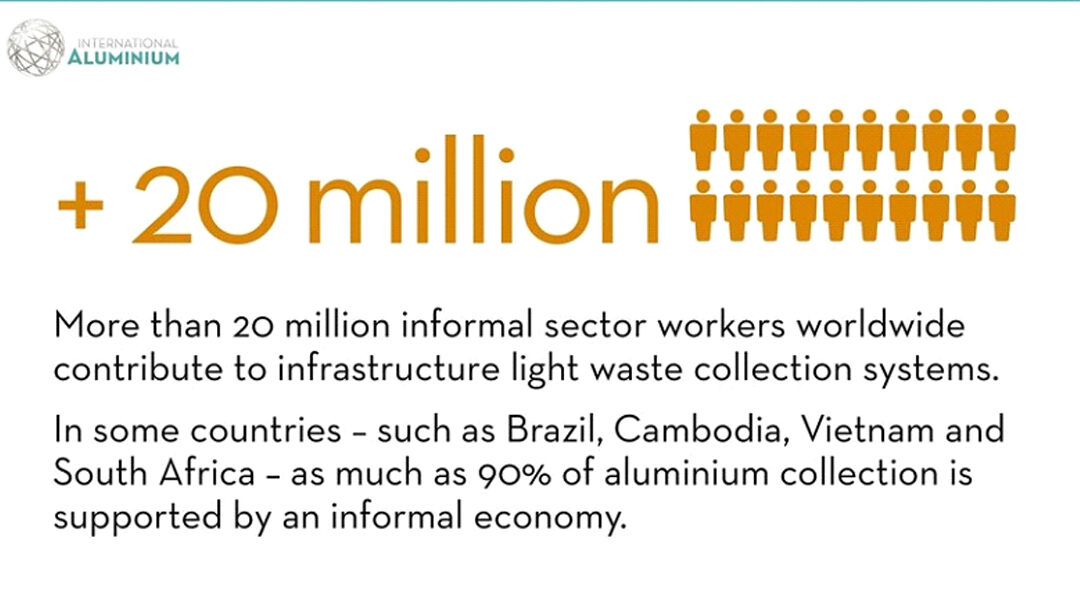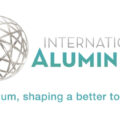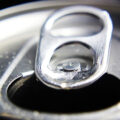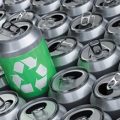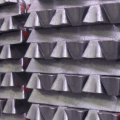By 2030, it is estimated that the recycling of aluminum beverage containers could result in savings of 60 million tons of CO2e (carbon dioxide equivalent) worldwide. This demonstrates the importance of recycling and how it can contribute to the care of the environment. The study was commissioned by the International Aluminium Institute and funded by Emirates Global Aluminium, Crown Holdings, Australian Aluminium Council and Novelis.
The study prepared by the international consulting firm Roland Berger for the IAI revealed the results of an assessment of aluminum can recycling in six countries in the Middle East, Oceania and Asia. The report includes 25 measures to increase recycling and a prioritized set of strategic recommendations to improve this process.
The findings and suggestions were obtained after evaluation of waste management methods in Australia, Cambodia, South Korea, Thailand, United Arab Emirates and Vietnam in relation to cans.
These countries came together to provide meaningful data on the use, collection and processing of cans in different cultures and regions. In addition, the assessment provides information on the used can scrap (UBC) trade in the Gulf and Asia Pacific regions, which are major trading centers.
Analyses were carried out in six different countries, evaluating aspects such as waste regulation and management, waste collection infrastructure, recycling and landfill disposal rates, amount of materials placed on the market, usage trends, overall performance, trade in used beverage cans, material flows and future targets.
In terms of recovery rates by country, South Korea stood out with the highest at 96%, followed by Vietnam at 93%, Cambodia at 90%, Thailand at 86%, Australia at 74% and the United Arab Emirates at 33%. This indicates that, compared to other countries, South Korea has achieved a higher number of people recovered from COVID-19.
The six nations are classified into three main groups.
There are some countries, such as Thailand, Cambodia and Vietnam, that rely on informal labor for aluminum can collection. This is due to the fact that these cans are an important source of income in these regions, which is why they have a high number of informal workers dedicated to their collection. As a result, these countries have significantly high recovery rates compared to other locations.
Countries such as Australia and South Korea have implemented advanced waste management systems. These systems are based on complex measures such as extended producer responsibility (EPR) and deposit return systems (DRS).
In terms of collection systems, the UAE has a very advanced and comprehensive infrastructure. However, they are not required to use efficiently functioning Extended Producer Responsibility (EPR) programs or Return and Refund Systems (RRS).
Despite growing concern about the environmental impact of the use of plastic and other materials, the alcohol and soft drink industries still prefer to use aluminum cans as their primary packaging. It is estimated that global can consumption will increase by 50% between 2020 and 2030, reaching some 630 billion annually compared to 420 billion today.
According to Marlen Bertram, IAI’s Director of Scenarios and Forecasting, a detailed study found that by 2022, more than 71% of all aluminum cans sold in the global market were recycled. The IAI conducted additional research on losses during the recycling process and concluded that 79% of cans sold in six countries end up being turned into recycled ingots for reuse.
The report highlights important actions to improve the industry, such as promoting greater awareness of the benefits of aluminum can recycling, investing in infrastructure and encouraging the creation of quality waste streams. It also shows how our industry can be a key player in advocating for the implementation of programs that make a significant difference in increasing aluminum can recycling rates.
“It is important to recognize the carbon reduction potential of recycling. The recycling of used aluminum products plays a key role in the overall decarbonization of the aluminum industry, as their recycling emits 0.6 tons CO2e per ton compared to 16.6 tons CO2e per ton for primary aluminum. For this reason, IAI members focus their strategies on decarbonizing their primary aluminum production and increasing the use of aluminum scrap, thus reducing landfilling after use.”he added.
According to statistics, Thailand is the country with the best can recovery rate in relation to its production, as 78% of the cans put on the market are recycled. However, 14% of cans still end up in landfills. In the United Arab Emirates, 67% of cans end up in landfills. Of all the cans placed on the market, 20% are used for can-to-can recycling.
Vietnam’s informal sector produces high quality scrap metal, but only recycles 1% of the cans. In addition, 92% of the cans recovered are used in non-recycling products. For more than 20 years, South Korea has implemented a Product Collection and Recycling (PRR) system and has the highest recovery rate of 96% among the countries studied. However, only 37% of the cans placed on the market for can sheet production are recovered – a relatively low rate for a country with established can recycling infrastructure and capabilities.
Currently in Australia, a voluntary extended producer responsibility (EPR) scheme and a return and refund system (DRS) is in place in six of the eight states and is expected to be implemented in the remaining two. These systems have contributed to a 74% recovery rate. Due to a shortage of local recycling capacity, all cans are exported, with 48% destined for can-to-can recycling.
Cambodia has high collection and recovery rates: collection is carried out by the informal sector that relies heavily on recycling for income. The country does not have its own recycling capacity and its cans are mostly reused in non-can products.
For Abdulnasser Ibrahim Saif Bin Kalban, CEO of Emirates Global Aluminum, aluminum is a vital material for a sustainable future. Although much less energy is required to recycle it than to manufacture it, a large amount ends up in landfills. Therefore, it is important to promote the culture of aluminum segregation and improve the recycling infrastructure. The company is working on the development of recycling facilities and collaborating with other stakeholders in the United Arab Emirates to promote aluminum recycling in society.
According to Marghanita Johnson, executive director of the Australian Aluminium Council, although Australia has advanced recycling policies and infrastructure in place, there is still room for improvement. Individual and collective actions can be taken to increase can recycling rates, reduce contamination and improve overall recycling rates.
On the other hand, Sandrine Duquerroy-Delesalle, Crown’s Director of Sustainability and External Affairs, the high recyclability of beverage cans made with aluminum has been a motivating factor to continue working for greater awareness and a better infrastructure to enable a higher recovery rate worldwide.
Through a new study, effective ways to improve the aluminum industry have been discovered in four key markets for Crown. All those involved in the supply chain are expected to take responsibility and take action based on these pathways to advance progress. In addition, it is important that regional governments support through the implementation of appropriate policies. It is essential that we obtain the necessary legislative support to meet our goals of reducing our carbon footprint by using more recycled aluminum in both the short and long term.
Finally, Sachin Satpute, president of Novelis Asia, concluded by saying that “aluminum can-to-can recycling is the most efficient way to save resources and energy, as well as reduce carbon emissions in the industry. Used aluminum cans can be recycled and returned to the store shelf as new cans in as little as 60 days. Aluminum recycling consumes only 5% of the energy required to produce primary aluminum, resulting in a 95% reduction in carbon emissions. Over the past 10 years, Novelis has invested and announced $2 billion in recycling capacity around the world. We will work with key stakeholders in the value chain to advance aluminum can circularity by improving can-to-can recycling.”.

